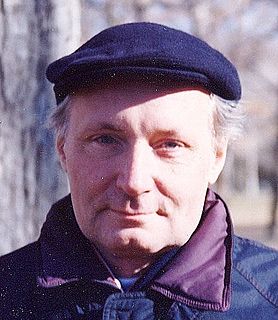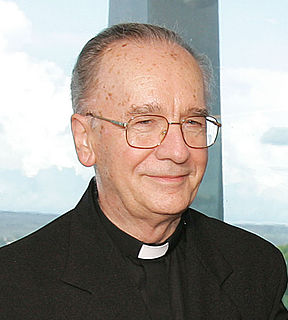A Quote by William Ames
Theology is the doctrine or teaching of living to God.
Related Quotes
The object is evident in the name of the discipline. Similarly, theology (theologia) is the study of God. The object of theology is not the church's teaching or the experience of pious souls. It is not a subset of ethics, religious studies, cultural anthropology, or psychology. God is the object of this discipline.
The ultimate goal of theology isn't knowledge, but worship. If our learning and knowledge of God do not lead to the joyful praise of God, we have failed. We learn only that we might laud, which is to say that theology without doxology is idolatry. The only theology worth studying is a theology that can be sung!
I do not believe that God intended the study of theology to be dry and boring. Theology is the study of God and all his works! Theology is meant to be LIVED and PRAYED and SUNG! All of the great doctrinal writings of the Bible (such as Paul's epistle to the Romans) are full of praise to God and personal application to life.
We see in the 20th Century an unfortunate trench warfare, in which psychoanalysis, in a struggle against the internalized compulsion and superstition of a particular doctrine, has expressed itself atheistically. By contrast, theology is not merely under suspicion of talking soullessly about God. Both theology and psychology, in striving for human health, need one another like the right and the left hand.
The ultimate test of my understanding of the scriptural teaching is the amount of time I spend in prayer. As theology is ultimately the knowledge of God, the more theology I know, the more it should drive me to seek to know God. Not to know about Him but to know Him! The whole object of salvation is to bring me to knowledge of God. If all my knowledge does not lead me to prayer there is something wrong somewhere.
Is it our task to force the biblical doctrine of God to answer to modern culture, or (is it our task) to address modern culture with the biblical doctrine of God? If modern culture-or any culture-establishes the baseline for the doctrine of God, such a doctrine will certainly bear little resemblance to the God of the Bible.
There is however difference between the theology of liberation and traditional theology, the latter being based primarily On the Word of God made incarnate in the Holy Scripture Liberation theology is of course also inspired by the Word, but its representatives are convinced that God also speaks to us in everyday events and that, for example, information obtained through the mass media can be a special way in which God speaks to us.
The scientific doctrine of progress is destined to replace not only the myth of progress, but all other myths of human earthly destiny. It will inevitably become one of the cornerstones of man's theology, or whatever may be the future substitute for theology, and the most important external support for human ethics.
It is God who gives us the spirit of worship (Psalm 133:3), and it is what we know of God that produces this spirit of worship. We might say that worship is simply theology, doctrine, what we think about God, going into top gear! Instead of merely thinking about Him, we tell Him, in prayer and praise and song, how great and glorious we believe Him to be!
Theology is a non-subject. I'm not saying that professors of theology are non-professors. They do interesting things, like study biblical history, biblical literature. But theology, the study of gods, the study of what gods do, presupposes that gods exist. The only kind of theology that I take account of are those theological arguments that actually argue for the existence of God.








































